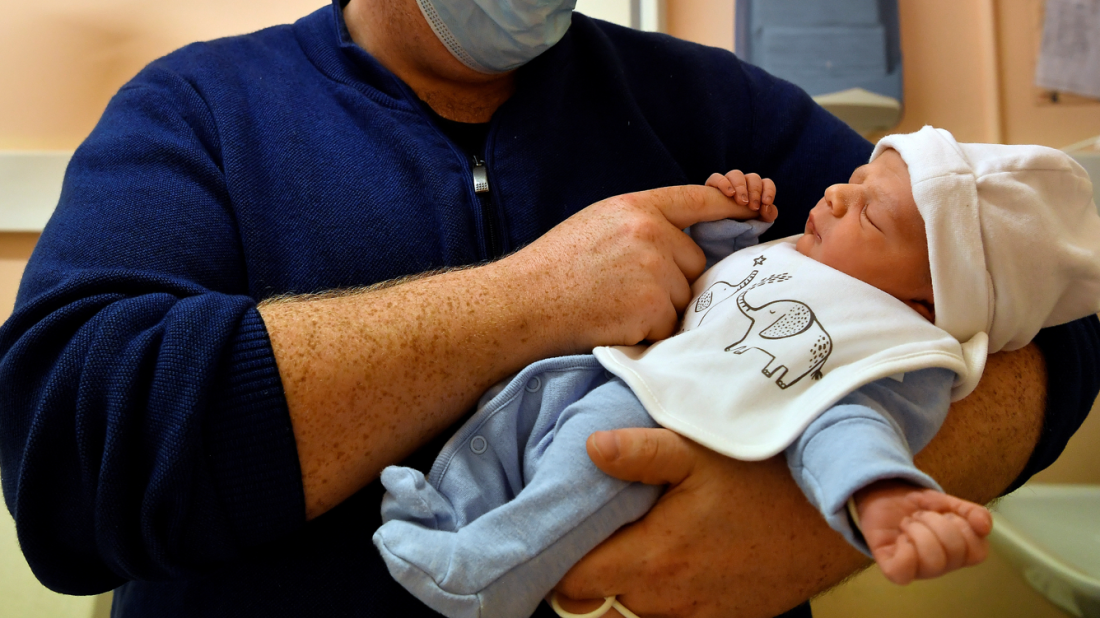Pashinyan defends U.S.-brokered peace deal for regional cooperation
Armenian Prime Minister Nikol Pashinyan defends the U.S.-brokered peace accord, calling it “not a zero-sum game” and a step toward regional cooper...

A new analysis of previous studies has found that women seeking in vitro fertilization might improve their odds of becoming pregnant if they lose weight.
The study published in the Annals of Internal Medicine also said that weight loss interventions appeared to improve the likelihood of spontaneous pregnancy.
However the major benefit of weight loss was mainly seen in the few couples who achievened pregnancy without assistance.
Weight loss interventions carried out by test subjects included low-calorie diets, an exercise program accompanied by healthy eating advice, and pharmacotherapy accompanied by diet and physical activity advice
No one intervention proved to be more successful than the other however.
According to the report by lead researcher Moscho Michalopoulou and colleagues at the University of Oxford, it was not clear whether they improved the odds of IVF-induced pregnancy.
Few things were unclear from the analysis including - the magnitude of advantage weight loss provided to obese women seeking IVF and whether weight loss improved the odds of a live birth.
There was also no evidence that weight loss increased the risk of pregnancy loss.
Dr. Alan Penzias, an IVF specialist at Beth Israel Deaconess Medical Center/Harvard Medical School in Boston, published an editorial with the study.
He says that “weight reduction among people with overweight or obesity has many known health benefits… (and) some patients may also achieve a desired pregnancy as a consequence of weight loss.”
But in decision-making about IVF, the editorial continues, “we must consider the marked decrease in fertility as age increases… and other factors that weight loss cannot address.”
The world’s biggest dance music festival faces an unexpected setback as a fire destroys its main stage, prompting a last-minute response from organisers determined to keep the party alive in Boom, Belgium.
A powerful eruption at Japan’s Shinmoedake volcano sent an ash plume more than 3,000 metres high on Sunday morning, prompting safety warnings from authorities.
According to the German Research Centre for Geosciences (GFZ), a magnitude 5.7 earthquake struck the Oaxaca region of Mexico on Saturday.
A resumption of Iraq’s Kurdish oil exports is not expected in the near term, sources familiar with the matter said on Friday, despite an announcement by Iraq’s federal government a day earlier stating that shipments would resume immediately.
A magnitude 5.2 earthquake struck 56 kilometres east of Gorgan in northern Iran early Sunday morning, according to preliminary seismic data.
The UK is gearing up for Exercise Pegasus 2025, its largest pandemic readiness test since COVID-19. Running from September to November, this full-scale simulation will challenge the country's response to a fast-moving respiratory outbreak.
A scientist in the US revealed the pioneering device which works alongside artificial intelligence to monitor the body's vital signs and alert in case of danger.
Dubai has launched its first-ever 'Mallathon,' a month-long event turning shopping centres into indoor running tracks to offer residents a safe way to exercise during peak summer heat, that started 1 August.
Tech giant Google has announced a $1 billion investment to support Artificial Intelligence (AI) education and research at universities across the United States.
What shapes human nature? Why do some people act with compassion while others turn cruel? For centuries, thinkers — from philosophers and playwrights to theologians and psychologists — have grappled with these timeless questions, searching for what lies at the heart of good and evil.
You can download the AnewZ application from Play Store and the App Store.

What is your opinion on this topic?
Leave the first comment